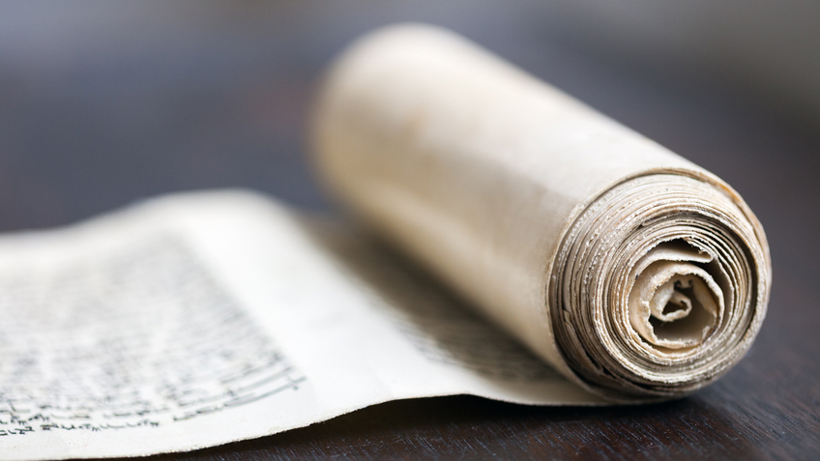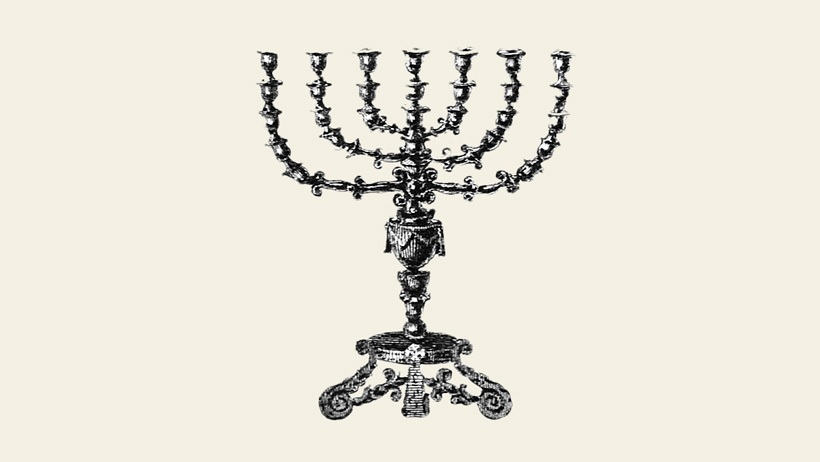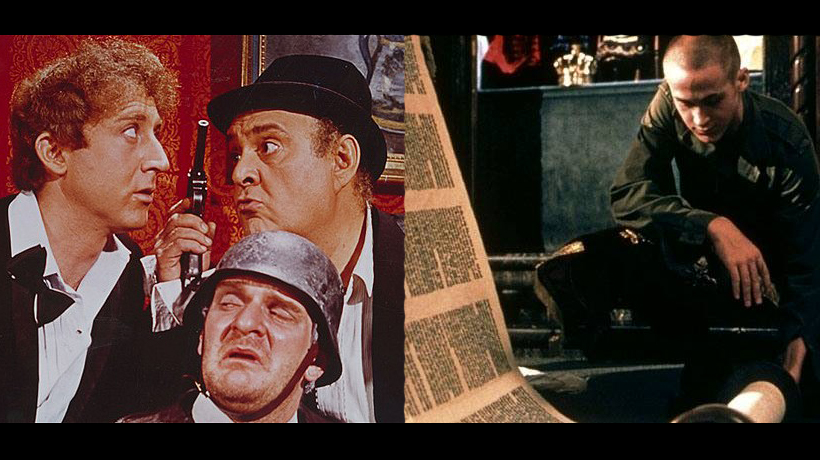In my last post, I shared "10 English Words that Come from Torah;" this time I will discuss 10 more words that came from other Hebrew sources. And we're not counting words that only relate to Jewish things, like "klezmer" and the word "Hebrew" itself.
Amen
"Amen" means "for damn sure," but is used when "damn" is not appropriate. We Jews pronounce this "ah- main," and we use it to respond to blessings, usually the ones that start "Baruch Atah..." The word comes from the Hebrew word emunah, which means "faith." As if to say: "That blessing you made? We have faith it will be so."
Bedlam
This word took a long way to get to where it is now. It means "chaos," because there once was a mental institution in London at the Hospital of St. Mary of Bethlehem; "Bedlam" was the common local pronunciation. In Israel, where the original town of Bethlehem is, you'll find the tomb of the matriarch Rachel. The town was named in honor of Rachel's habit of baking for her guests, the town was called "Beit Lechem" (as in "hamotzei lechem"), which means "The House of Bread."
Camel
Asked what that sandy, lumpy creature was by the first European visitors to Israel, the locals responded with its Hebrew name, "gamal." But the "g" in Israeli Hebrew is said low in the throat, and the listeners heard "camel." The letter "gimmel" was drawn to look like the front half of a "gamal" (go find a dreidel and look).
Golem
"Golem" is the probable source of the name for Tolkien's Gollum character. The story of the clay figure brought to life to defend the Jews of Prague against pogroms is the source of every "inanimate human form come to life" character from Frankenstein's monster and Dorothy's Scarecrow to Pinocchio the marionette and Frosty the Snowman, not to mention every robot or android. One of the earliest computers was dubbed "Golem," and the word today means any automoton, or a person who routinely and unthinkingly follows orders.
Hallelujah
"Hallelujah" is used to mean "Praise the Lord!" and that's exactly what it means. This is a compound word. The first part, "hallel," means "praise," (this is where the name of the Hallel holiday prayer and the name Hillel come from. The "u" suffix means "we," and "Yah" -- or "Jah," as a Rastafarian might tell you -- is one of the names of God. It also becomes part of many Jewish names, like Isaiah, Jeremiah, Zarachaiah, Nehemiah, and Obadiah. Here is the Leonard Cohen song, you were expecting (if not the version you were).
Hosanna
Also used as an interjection of praise, or in lines like "The returning Olympic medalist was met with many hosannas." It's also a compound word in Hebrew, but not used that way. In prayer, it's a request for deliverance from danger and salvation from sin: "Save, us, please!" In Hebrew, it's Hoshannah, "Hosha" meaning "to save," and "na" meaning "please." The word is repeated in the Hallel prayer, and repeated dozens of times during the Sukkot processional called Hoshannot (the plural of Hoshannah).
Messiah
"Moshiach" is how we pronounce it in Hebrew. In English, we can use messiah in a sincere religious sense, or we can use it colloquially: "We looked upon the new IT director as our technological messiah." It literally means "savior," as the root word means "to save."
Paschal
To some, "paschal" means "having to do with Easter," but that's only because Easter falls at the same time as a holiday that it is somewhat based on, the Jewish Passover -- or as we call it, Pesach. The English word is basically just "Pesach" with an "al" suffix. In other languages, Easter itself is called "Pascua" (Spanish), "Pashka" (Russian), and "Pask" (Swedish).
Shamus
Not much in use anymore except by film noir characters who used it to mean "detective," either referring to a police officer or private investigator. The shamus of the synagogue, however, was an assistant to the rabbi, doing a lot of the prep work for the next service (Christians call this job "sexton."). A shamus was around all the time and saw a lot of things, which is probably why the connection was made to clue-finding. We Jews mostly use the word today on Chanukah; the "shamash" is the candle that lights the others but does not count among those candles that tell you which day of Chaukah it is. It's just there to help.
Tush
We all know "tush" is an adorable word for one's bottom, rendered salacious by ZZ Top. The word comes to us from the Yiddish " tuchus," which got it from the Hebrew word tachat, which means "under."
Next time, we will learn the Hebrew history of the alphabet we use every day.


.jpg?n=8381)

.jpg)





.jpg)



